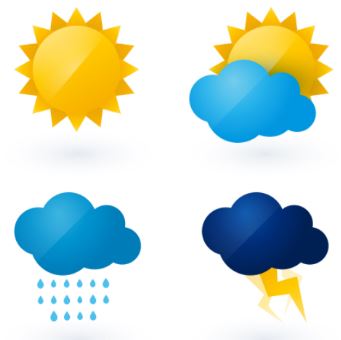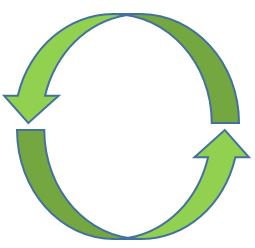To many young children, science is an abstract subject, which is why it is included in the world around us topics at EYFS. When pupils get a little older, the concept of science can be introduced as a subject in which we find out about things in our world and in space, making hypotheses and then testing them before coming to a conclusion based on the information we have gathered and what we already knew.
For KS1, thinking of science as a series of processes in different aspects of the world is a good start and for this series of activities, we try to encourage the pupils to identify then investigate processes.
Begin by taking the children outside and ask them to look around them for processes that are taking place. You may have to point one out for them to be able to identify others. Ones that could be discovered are:
The growth of plants and trees
The life cycle of insects and animals
Decay
Weather patterns
Humans
Activity One: Growth of Plants and Trees
Suitable for: Rec to Year 2
Learning Focus:
- To identify the changes in a plant or trees physical form as it grows
- To recognise that the change is a process called growth
Looking around them the pupils will see small plants, immature trees and mature, big trees.
Talk about the differences and how we can tell if a plant or tree is full grown.
Now ask the children to work together in pairs to decide what they might like to find out about plants and trees. Bring them all together and collate the questions. Choose three to answer and ask them how they think it’s possible to answer them.
Likely questions might be . . .
How fast do trees grow?
How tall do they grow?
Do all trees have flowers?
How long do plants and trees live for?
By using this approach, pupils get to find out about what they really want to know, not just what the curriculum tells them they need to. It makes them science investigators and more aware of their surroundings.
Activity Two: Life cycles
Suitable for: Rec to Year 2
Learning Focus:
- To be able to identify stages in the life process
- To recognise that living things are born or germinate or hatch, grow and eventually die, preserving the species by reproducing
You can ask the pupils to look around them and find examples of different stages of life – perhaps if you’re lucky, a bird’s eggshell, some seeds or fruit, flowers, a dead leaf and more.
Ask them to arrange them in a ‘circle of life’. It’s unlikely they’ll find every aspect of the lifecycle but they can discuss and fill in for themselves the missing links.
Ask them to say which stage of the life cycle they are at.
Now ask them if there’s anything about process they’d like to find out more about e.g.
How long is each part of the cycle?
Do all living things pass through all stages of the cycle?
Can we slow down or stop some stages?
Can some stages speed up or come sooner?
How can they find out the answers to some of these questions?
Activity Three: Decay
Suitable for: Rec to Year 2
Learning Focus:
- To recognise that living things, once dead, decay and become recycled
- To recognise some of the agents of decay
In the autumn there are likely to be lots of examples of decay around in the school grounds. Maybe rotting fruit, fallen leaves, dead flowers and more.
Ask the pupils to find examples of things which were alive but which aren’t any more. Mark them with labels and photograph them in situ at daily or weekly intervals making a display of the photographs to track the changes because of decay.
Ask them what they think causes the decay. Look more closely at a fruit or a leaf. Can they notice anything about them that may indicate an agent of decay at work?
Again, ask them if there’s anything in particular they would like to know about decay. You may get questions such as . . .
Can it be stopped?
What causes it?
What can speed it up or slow it down?
Activity Four: Weather Patterns
Suitable for: Rec to Year 2
Learning Focus:
- Understand that the weather changes are sometimes dependent on the time of year
- Recognise that some key weather patterns are linked to temperature change
The sky and what falls from it is another good example of science processes around us. In most locations it’s possible to tell the general direction that the weather comes from.
Play weather forecasters with them by getting them to look at the sky in the direction the weather is coming from and predict what the weather will be in perhaps an hour or three hours. Can they predict further ahead than that?
Ask them to note how the sky changes as different weather approaches. When rain is coming, the clouds build, get darker and then rain starts. When sunny weather is coming, breaks appear in the clouds and eventually the blue sky wins over the grey. They could do a sequence of pictures that show the changes as a guide to forecasting for the rest of the school.
More difficult for them is to predict when we might get snow or thunder or strong winds but let them try guessing.
Activity Five: Human Life
Suitable for: Rec to Year 2
Learning Focus:
- Understand that humans are animals and go through the same stages in our lives as many animals do
- Identify the key changes in life
Often one of the least considered aspects of scientific processes is human life because we live it and don’t actually think about how we live it.
Ask them what they do each day that maintains the process? Get them to draw pictures that show what they do each day to keep themselves alive – eating, drinking, breathing, sleeping.
What stage of the life cycle are they at? What stage will they be at next? Do they know the rest of the human life cycle?
Do they have any questions about life and the life process?
You may well get some tricky questions on this . . .
When will I die?
Can we live forever?
Why do we get wrinkles/grey hair?
How can I live longer?
The answers to these questions are at best obscure and sometimes need careful handling but stick to answers about lifestyle choices and you’ll be able to give them adequate answers.





